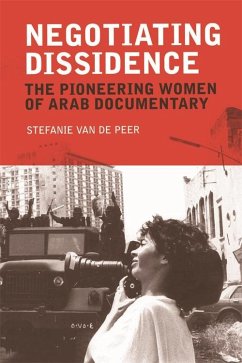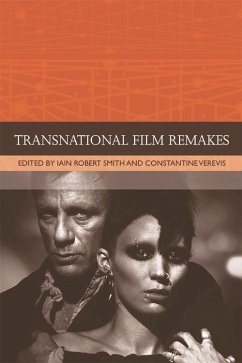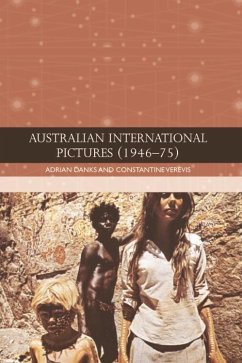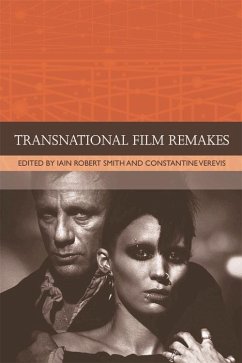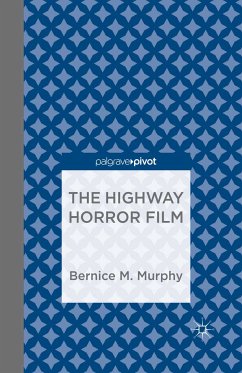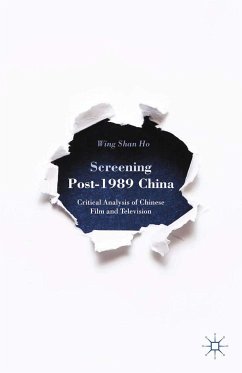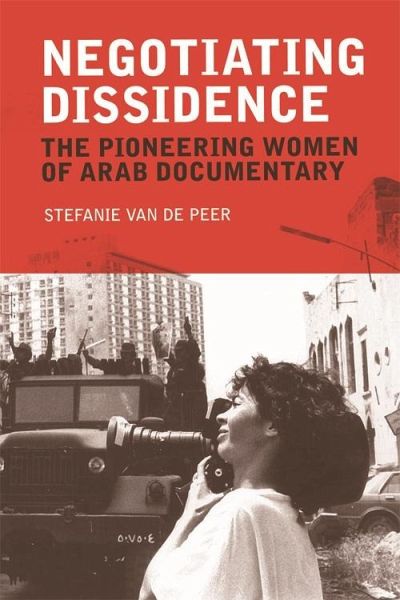
Negotiating Dissidence (eBook, PDF)
The Pioneering Women of Arab Documentary
Versandkostenfrei!
Sofort per Download lieferbar
0,00 €
inkl. MwSt.
Weitere Ausgaben:

PAYBACK Punkte
0 °P sammeln!
In spite of harsh censorship, conservative morals and a lack of investment, women documentarists in the Arab world have found ways to subtly negotiate dissidence in their films, something that is becoming more apparent since the 'Arab Revolutions'. In this book, Stefanie Van de Peer traces the very beginnings of Arab women making documentaries in the Middle East and North Africa (MENA), from the 1970s and 1980s in Egypt and Lebanon, to the 1990s and 2000s in Morocco and Syria.Supporting a historical overview of the documentary form in the Arab world with a series of in-depth case studies, Van ...
In spite of harsh censorship, conservative morals and a lack of investment, women documentarists in the Arab world have found ways to subtly negotiate dissidence in their films, something that is becoming more apparent since the 'Arab Revolutions'. In this book, Stefanie Van de Peer traces the very beginnings of Arab women making documentaries in the Middle East and North Africa (MENA), from the 1970s and 1980s in Egypt and Lebanon, to the 1990s and 2000s in Morocco and Syria.
Supporting a historical overview of the documentary form in the Arab world with a series of in-depth case studies, Van de Peer looks at the work of pioneering figures like Ateyyat El Abnoudy, the 'mother of Egyptian documentary', Tunisia's Selma Baccar and the Palestinian filmmaker Mai Masri. Addressing the context of the films' production, distribution and exhibition, the book also asks why these women held on to the ideals of a type of filmmaking that was unlikely to be accepted by the censor, and looks at precisely how the women documentarists managed to frame expressions of dissent with the tools available to the documentary maker.
Supporting a historical overview of the documentary form in the Arab world with a series of in-depth case studies, Van de Peer looks at the work of pioneering figures like Ateyyat El Abnoudy, the 'mother of Egyptian documentary', Tunisia's Selma Baccar and the Palestinian filmmaker Mai Masri. Addressing the context of the films' production, distribution and exhibition, the book also asks why these women held on to the ideals of a type of filmmaking that was unlikely to be accepted by the censor, and looks at precisely how the women documentarists managed to frame expressions of dissent with the tools available to the documentary maker.
Dieser Download kann aus rechtlichen Gründen nur mit Rechnungsadresse in A, B, BG, CY, CZ, D, DK, EW, E, FIN, F, GR, HR, H, IRL, I, LT, L, LR, M, NL, PL, P, R, S, SLO, SK ausgeliefert werden.




